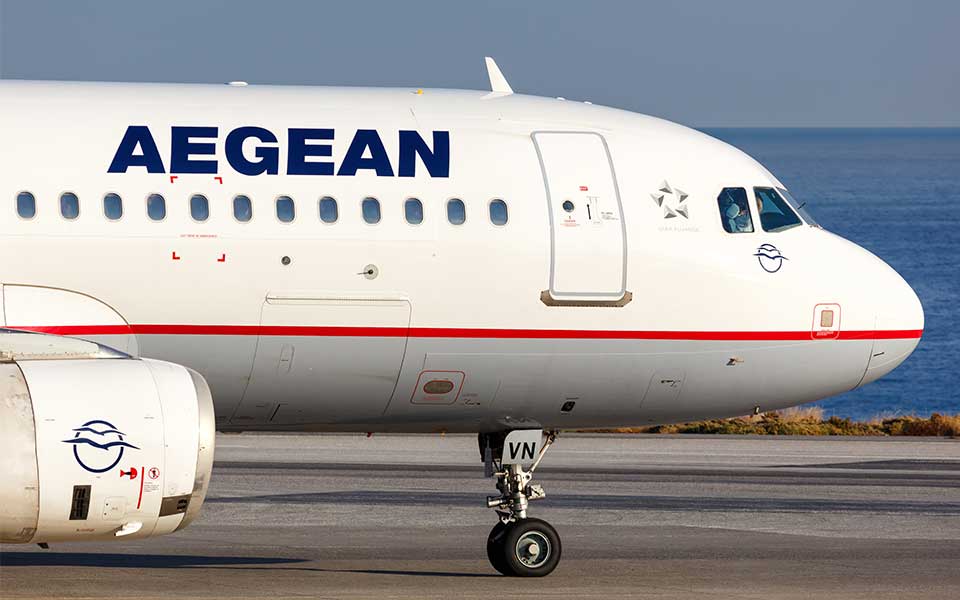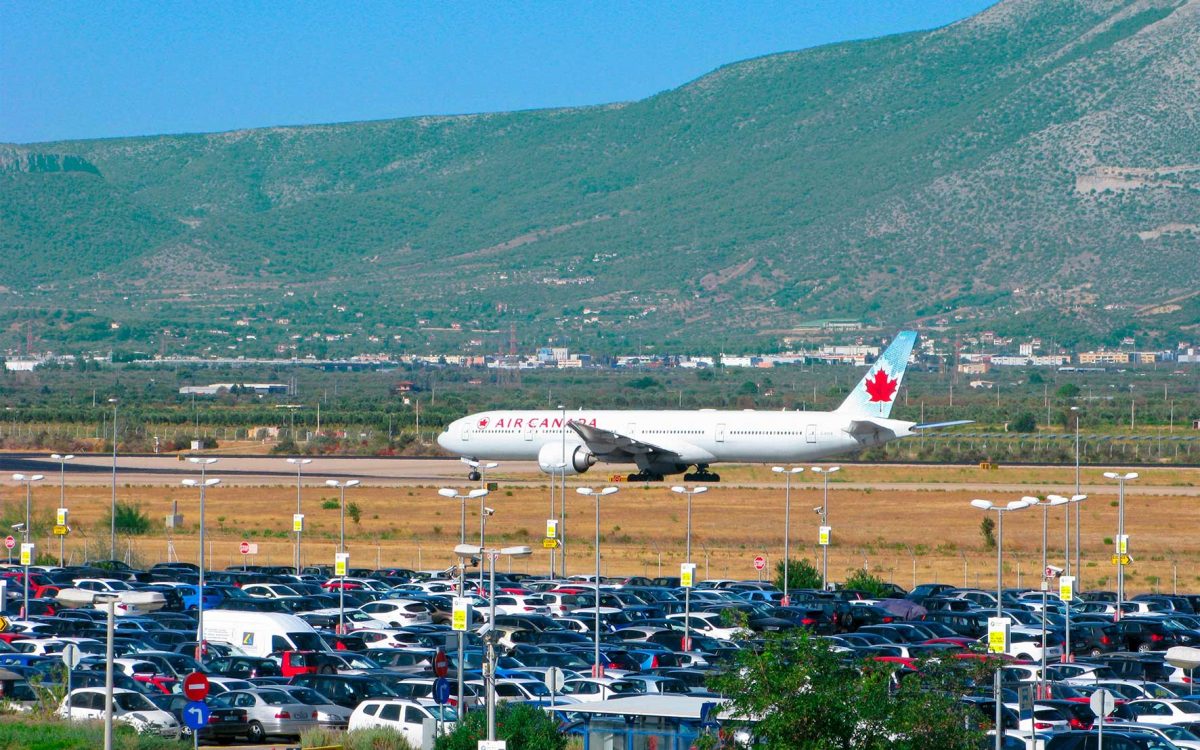Air Canada Resumes Direct Flights to Athens
As Greece's tourism season gets underway…

© Shutterstock
In the last two years, following the outbreak of the pandemic at the end of December 2019 in China, unpredictability has established itself as one of the key components of the modus operandi for the aviation industry. Indeed, the moment Covid-19 began to be brought under control, Russia launched its invasion of Ukraine, once again unsettling the global and Greek economy. Nevertheless, despite the ongoing war in eastern Europe, the baseline scenario for airlines this summer, in Greece and abroad, looks like a return to the pre-pandemic levels of 2019. Aegean’s chairman, Eftichios Vassilakis, gave this analysis at last Tuesday’s teleconference on the financial results of 2021, noting that, unless an unpredictable external crisis factor appears, the performance of this year’s tourist season will reach the levels of 2019.
This summer, Aegean Airlines will offer up to 15.2 million seats, restoring some 15 routes from Athens Airport that had been suspended due to the pandemic. These include Amman, Bari, Basel-Mulhouse, Hannover, Ibiza, Jeddah, Paphos, Palermo, Podgorica, Tunisia, Valencia, Zagreb, Florence, Bilbao, Cologne, Kuwait, and Oslo. Aegean is also seeking to increase aircraft occupancy this year by 75%, which will lead to an estimated improvement in revenue per flight of 12 to 14%. This target will be achieved through the hedging of both foreign financial exchange risk and fuel risk, which corresponds to 50% and 5% of the needs for this year and 2023 respectively.
The common denominator of Aegean’s strategy is the restructuring of its fleet, which started in 2017, including this year’s addition of nine ATR72-600 aircraft and 12 new Airbuses (A320 and 321neo). As a result, by the third quarter of 2022, 40% of the airline’s capacity on offer will come from the new Airbuses and ATR72-600s, with this figure rising to 75% by the end of the year. At the same time, the reduction of borrowing by 100 million euros in cash and cash equivalents, 475 million euros worth of pre-sale tickets, ranging from 80-83% of 2019 levels, and the emergence of positive operating flows from mid-February – last year this was only possible from May – combined with the increased demand for business augur well that 2022 will be the last loss-making year for Aegean, according to Mr Vassilakis. This is because losses of around 72 million euros in proportion to the generated revenue of 675 million is low compared to the corresponding figures of other European aviation companies.
This year’s expected rebound in Greek tourism has also strengthened the competition among foreign airlines for spaces at Greek airports, resulting in a higher capacity by 7-10%, channeled, for the most part, to the islands. Indicatively, Air Canada has restored the connection between Athens and Toronto since the end of March, with 300,000 seats. British-owned airline Jet2.com and the travel agency Jet2holidays are offering 1.1 million seats, an increase of 86% compared to 2019. Spain’s Volotea is offering more than 560,000 seats this year (up from 518,000 in 2019) on its 14 routes to and from Athens International Airport, which started on April 2nd. The low-cost airline will operate flights to and from Bilbao, Bordeaux, Nantes and Turin.

Flights from Toronto to Athens started on April 2nd.
© Shutterstock
A return to levels prior to the pandemic is also expected by the largest European airlines. It is indicative that, at a recent air transport conference in Brussels last week, Lufthansa Group CEO Carsten Spohr said that if he were a customer, her would rush to book tickets immediately after his speech. “Ticket prices will rise due to the overall lower capacity and demand approaching 2019 levels,” he said, adding that booking have already returned to pre-pandemic levels, a trend that is expected to persist into the summer.
In addition to Lufthansa, IAG (British Airways, Iberia, Vueling, Air Lingus, etc.) and Ryanair, which are among Europe’s largest airlines, will offer, at the peak of summer, capacity that will be almost equivalent to that of 2019. In other words, it is estimated that the number of places offered in Europe in the third quarter will be only 1% less compared to the same period in 2019, when they brought in a revenue of 36.8 million euros.
This article was previously published in Greek at moneyreview.gr.
As Greece's tourism season gets underway…
As people rediscover their wanderlust, the…
With the new extension that's due…
Greece's Minister of Tourism hails the…